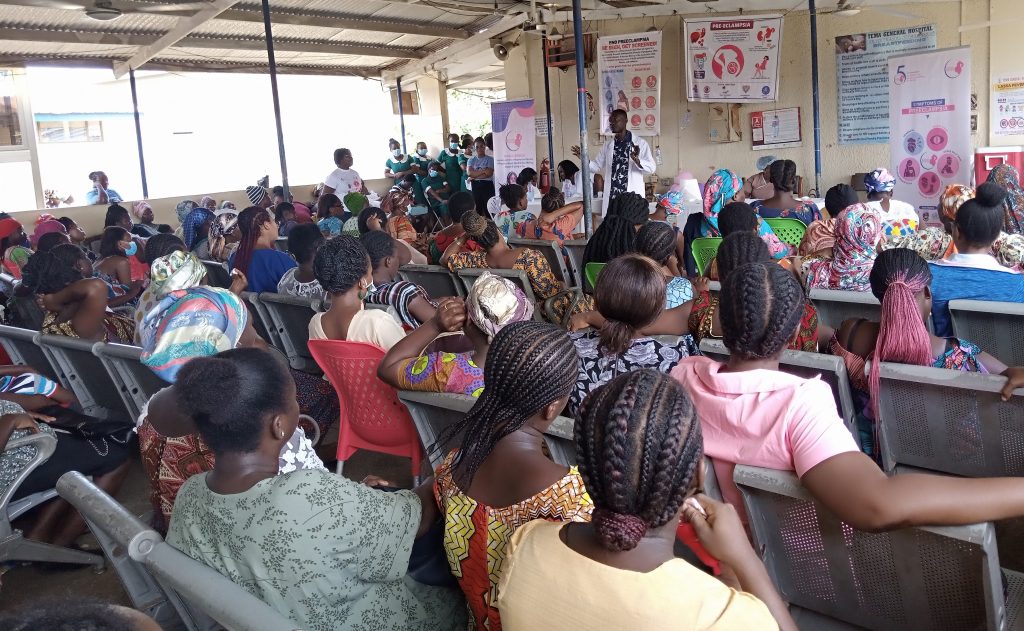By Ruth Dery
Tema, May 29, GNA-The Tema General Hospital has marked 2023 World Preeclampsia Day, which seeks to increase efforts to raise awareness about hypertensive disorder during pregnancy.
Dr Jacob Owusu, a Medical Officer with the Obstetrics and Gynaecology Department at the Tema General Hospital, stated during the commemoration that severe headaches, blurry vision, high blood pressure, swollen feet, hands, and face, and upper belly pain are some of the symptoms of preeclampsia.
“Having a record of preeclampsia in a past pregnancy, having high blood pressure, and carrying more than one foetus can pose a higher risk of preeclampsia during pregnancy,” he said.
World Preeclampsia Day is observed annually on May 22. Preeclampsia and related hypertension diseases of pregnancy affect roughly 76,000 mothers and 500,000 newborns every year.
World Preeclampsia Day aims to increase awareness about the potentially fatal pregnancy condition. The theme is “Advancing Preeclampsia Research,” emphasising the importance of pushing forward in our quest to enhance our understanding and find effective solutions for this life-threatening condition.
Dr Owusu also added that obesity, being pregnant for the first time, and having a family record of preeclampsia are also moderate risk factors for preeclampsia during pregnancy.
Madam Cynthia Asante, a Public Health Nurse also encouraged pregnant women to take prenatal appointments, regularly monitor their blood pressure, share all pregnancy symptoms with healthcare providers, and eat healthy diets to ensure safe delivery.
Ms Koiwah Koi-Larbi, Executive Director for Action on Preeclampsia Ghana (APEC), who was a guest, explained during an interview with the Ghana News Agency in Tema that the month of May is dedicated to improving outcomes of hypertension disorders of pregnancy through shared decision-making, research, and quality care.
She explained that preeclampsia is a condition in pregnancy characterised by high blood pressure that usually begins at 20 weeks of pregnancy and can lead to serious complications for both mother and baby.

Adding that maternal hypertensive disease is the second leading cause of maternal mortality, emphasizing the importance of identifying the condition well in advance,
She stressed that preeclampsia can hit without warning, but the earlier it is recognized and monitored, the better the chances of survival for both mother and child.
Ms Koiwah, who is a victim of preeclampsia, reiterated that the condition causes intrauterine growth restriction, which is associated with a baby born too small and with low birth weight, as the condition prevents the foetus from being adequately nourished and supplied with oxygen.
“You may be 27 weeks pregnant, but the baby may be 20 weeks. So when the baby comes out, its survival chances are low,” she said.
Preeclampsia occurs around the 20th week of pregnancy and is characterised by high blood pressure and protein in the urine.
It can cause major difficulties for both the mother and the baby if it is not monitored and managed. Less time between diagnosis and treatment means better outcomes for both mother and baby.
GNA